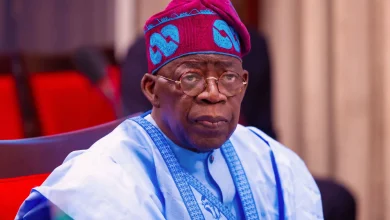Somaliland Votes Amid Regional Tensions
Amid escalating regional tensions, voters in the self-declared state of Somaliland are set to cast their ballots on Wednesday in what marks its fourth general election since breaking away from Somalia in 1991.
While Somaliland has established its own government, parliament, currency, and passports, its sovereignty remains unrecognized internationally, with Somalia asserting that it is still part of its territory.
In the capital city of Hargeisa, supporters of the ruling Kulmiye Party (Peace, Unity and Development) filled the streets, dressed in green and yellow, chanting victory songs as the campaign concluded last week.
Incumbent President Muse Bihi Abdi is seeking a renewed five-year mandate, with the election delayed by two years due to logistical and financial challenges. His main challenger is Abdirahman “Irro” Mohamed Abdullahi, the former parliament speaker and candidate from the Somaliland National Party (Wadani), who has promised greater representation for women and youth in governance.
Key issues driving the election include rising living costs and territorial disputes with rebels in the contested Las Anod region, which Puntland, another autonomous area that separated from Somalia in 1998, claims. The candidates’ international standing could significantly influence Somaliland’s aspirations for recognition as an independent state.
President Abdi has highlighted a landmark “port-for-recognition” memorandum of understanding (MOU) with neighboring Ethiopia, signed in January.
This agreement allows Ethiopia, the largest landlocked nation in Africa, to access Somaliland’s Berbera Port in exchange for an assessment of Somaliland’s recognition quest. Although Ethiopia has not formally pledged to recognize Somaliland, officials in Hargeisa see this as a potential pathway to legitimacy.
The port deal has heightened tensions with Somalia, leading to a collapse in relations between Ethiopia and Somalia. Recently, an Ethiopian diplomat was expelled from Mogadishu amid ongoing diplomatic disputes.
Irro has seized on this fallout, criticizing Abdi for being divisive. Meanwhile, Egypt and Turkey have become involved, with Turkey attempting to mediate and Egypt backing Somalia with military aid.
“The situation has become more tense with outside actors getting involved,” said Mousafa Ahmad, a political analyst based in Hargeisa. “The deal’s future remains unpredictable.”
Ethiopia’s pursuit of direct access to maritime routes follows a long history of conflict, notably losing coastline access when Eritrea seceded in 1993. The proposed lease of Berbera Port includes 20 kilometers of coastline for Ethiopia and has significant implications for the region’s geopolitical dynamics.
Despite local enthusiasm for the port deal, analysts suggest that a shift in government may not derail it. “The deal will likely continue even if Wadani wins,” Ahmad noted, although the timeline for finalizing the lease remains uncertain.
On the international stage, relations have soured between Somalia and Ethiopia, exacerbated by Egypt’s military support for Somalia amidst the ongoing tensions surrounding the Grand Ethiopian Renaissance Dam (GERD). Egypt and Ethiopia are already at odds over this controversial dam, further complicating the regional landscape.





